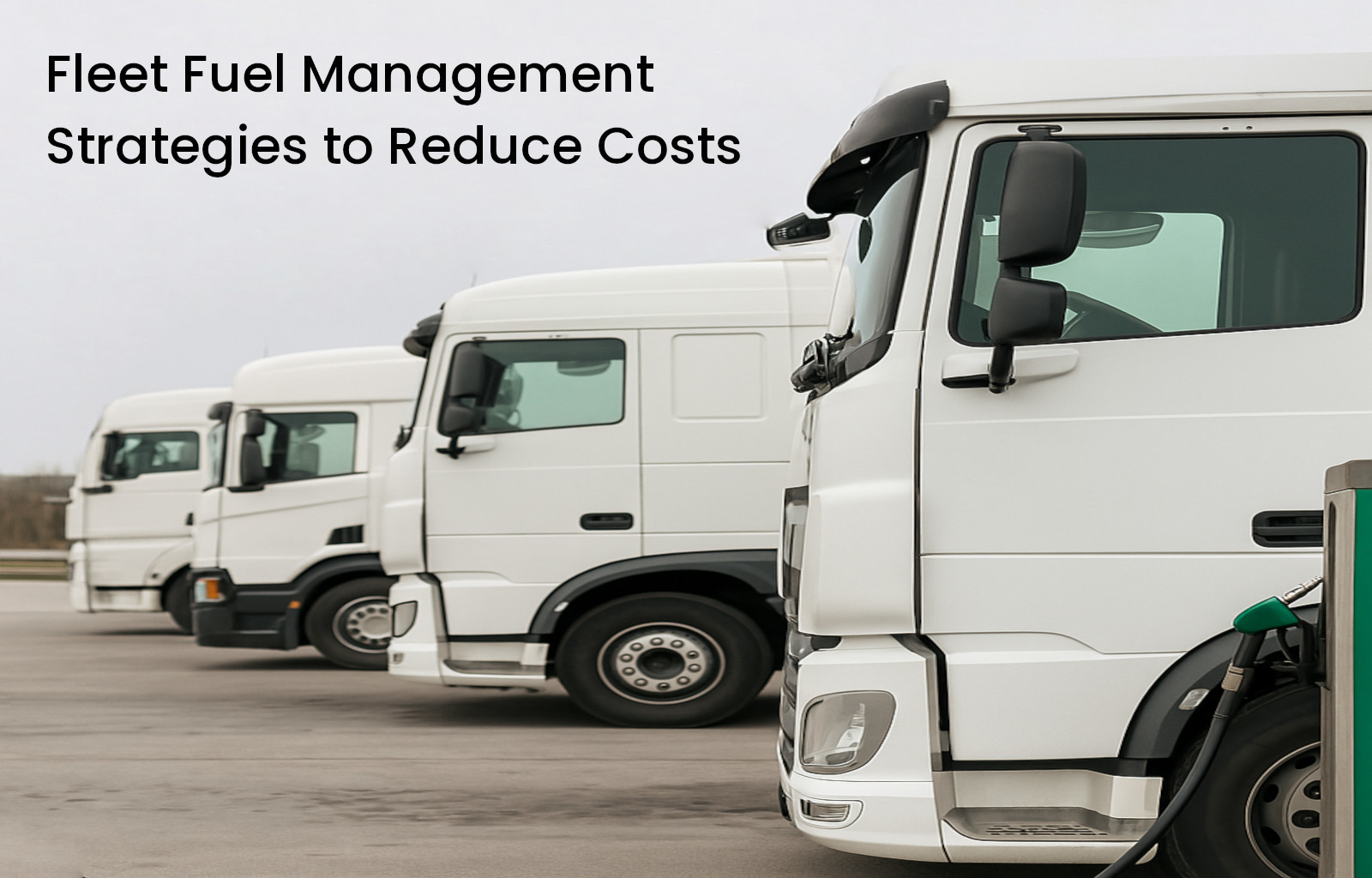Fleet Fuel Management Strategies to Reduce Costs
Introduction

Fuel expenses account for a significant portion of fleet operating costs, making efficient fuel management essential for businesses looking to optimize their expenses. By leveraging technology, implementing best practices, and monitoring fuel consumption, fleet operators can significantly reduce costs while improving operational efficiency.
In this article, we explore key strategies for managing fleet fuel consumption and cutting unnecessary expenses.
1. Implement a Fuel Monitoring System
Modern telematics and fuel management systems provide real-time insights into fuel usage, helping fleet managers:
- Detect fuel theft or unauthorized refueling.
- Identify inefficient fuel consumption patterns.
- Optimize fuel purchasing strategies.
2. Optimize Route Planning and Scheduling
Efficient route planning reduces unnecessary mileage and minimizes fuel waste. Consider:
- GPS and Telematics Integration – Real-time tracking helps avoid traffic congestion.
- Dynamic Route Adjustments – AI-powered systems adjust routes based on weather and road conditions.
- Load Optimization – Reducing unnecessary cargo weight improves fuel efficiency.
3. Encourage Fuel-Efficient Driving Habits
Driver behavior plays a crucial role in fuel consumption. Implementing training programs and real-time monitoring can help reduce fuel costs by addressing:
- Excessive Idling – Encourage drivers to turn off engines when stationary for long periods.
- Harsh Acceleration and Braking – Promote smooth driving techniques.
- Speed Management – Enforce speed limits to prevent excessive fuel consumption.
4. Utilize Fuel Cards for Better Control
Fuel cards provide detailed insights into fuel purchases and help prevent fraud. Benefits include:
- Tracking Expenses – Monitor fuel purchases in real-time.
- Setting Limits – Restrict purchases to prevent unauthorized spending.
- Consolidating Reports – Analyze fuel costs and identify areas for improvement.
5. Regular Vehicle Maintenance and Tire Management
Well-maintained vehicles consume less fuel. Key maintenance practices include:
- Regular Engine Checkups – Ensures optimal performance and fuel efficiency.
- Proper Tire Inflation – Underinflated tires increase fuel consumption.
- Aerodynamic Improvements – Reduce drag with streamlined vehicle designs.
6. Leverage Alternative Fuels and Eco-Friendly Practices
Reducing dependence on traditional fuels can significantly cut costs. Consider:
- Hybrid and Electric Vehicles – Investing in fuel-efficient or electric fleets.
- Using Biofuels – An eco-friendly alternative that lowers carbon footprint.
- Reducing Unnecessary Load – Lighter vehicles consume less fuel.
7. Analyze Fuel Data and Optimize Procurement
Data-driven decision-making can help fleet managers:
- Identify Fuel Consumption Trends – Optimize refueling schedules and vendor selection.
- Negotiate Bulk Fuel Purchases – Secure better pricing from fuel suppliers.
- Use Predictive Analytics – Forecast fuel needs and reduce unnecessary expenses.
Conclusion
Fuel costs can make or break a fleet’s profitability. By leveraging technology, optimizing routes, promoting efficient driving habits, and implementing fuel monitoring systems, businesses can reduce expenses while improving operational efficiency. Adopting sustainable fuel management strategies not only saves money but also contributes to a greener and more sustainable future.
Optimize Your Fleet Fuel Management
Looking for more ways to cut costs and improve fleet efficiency? Explore our articles on telematics, route optimization, and fleet tracking!
